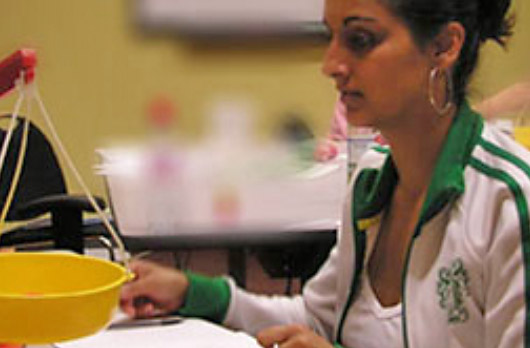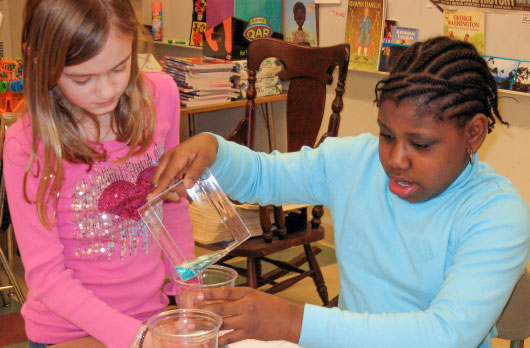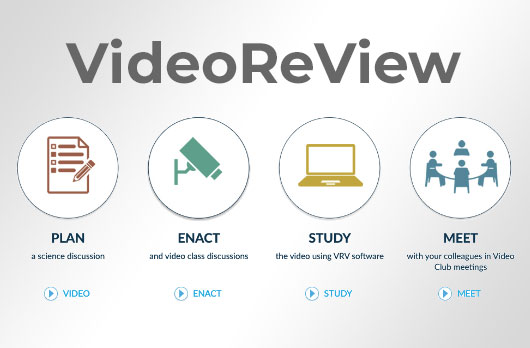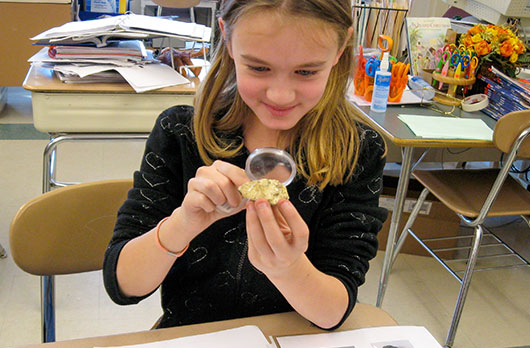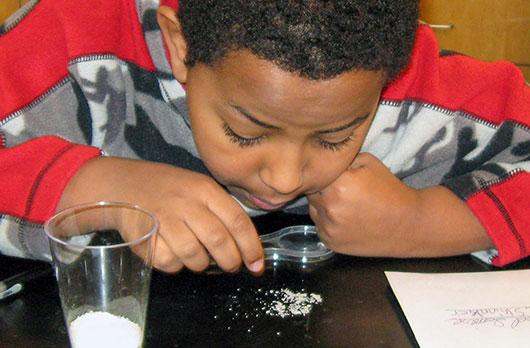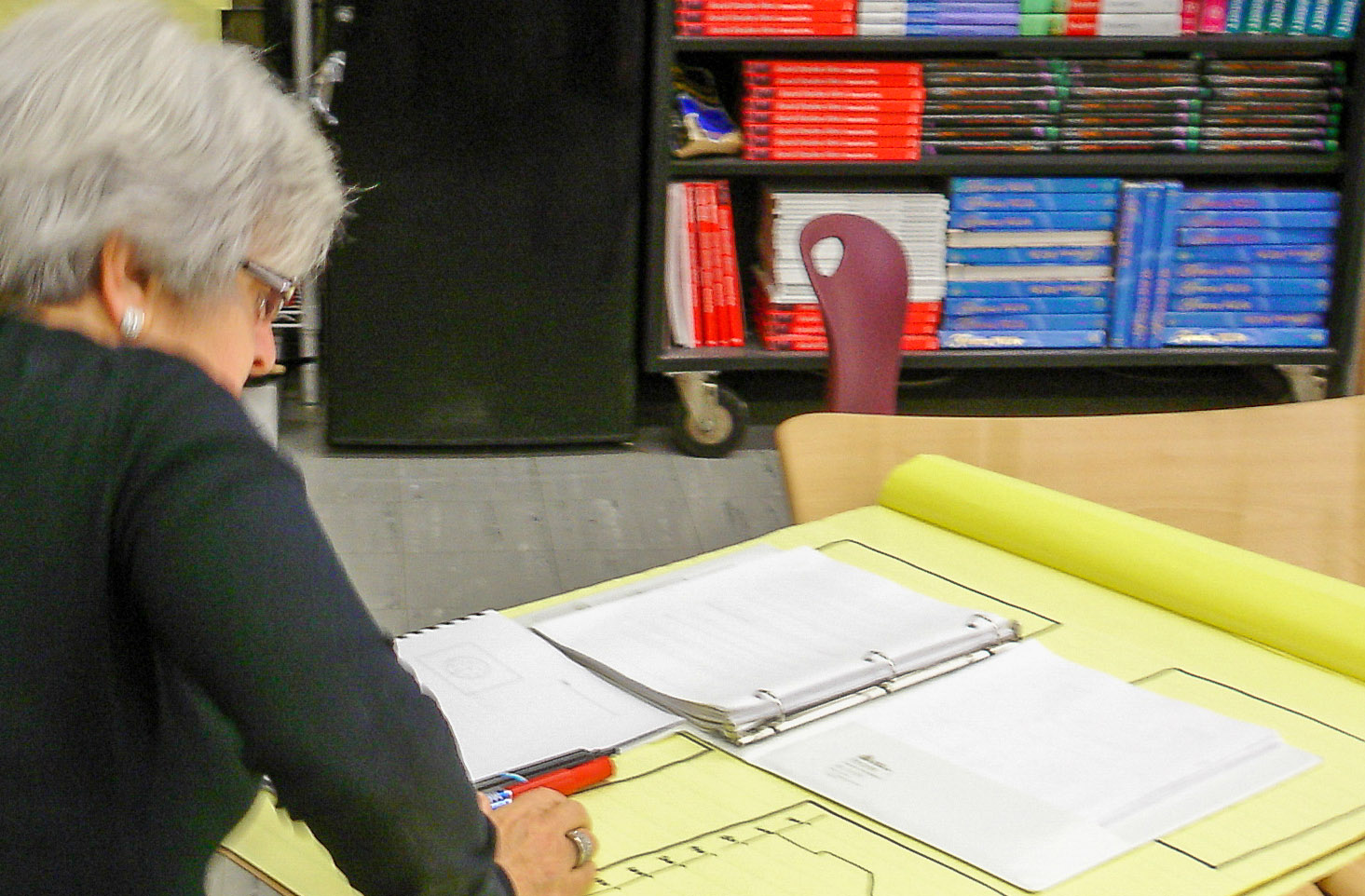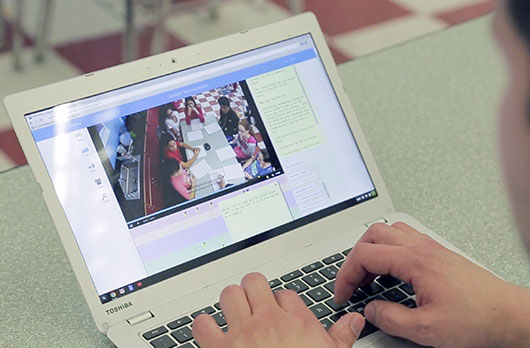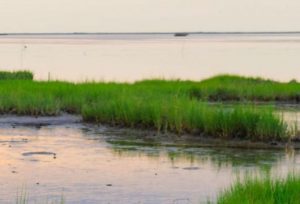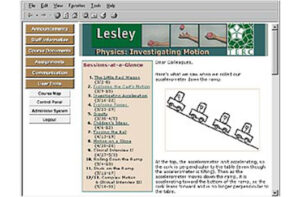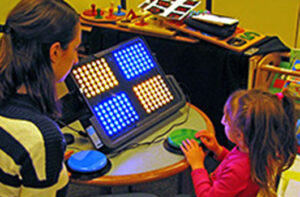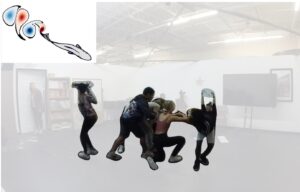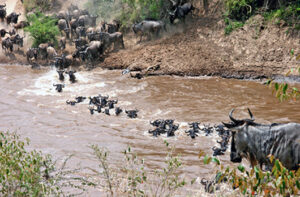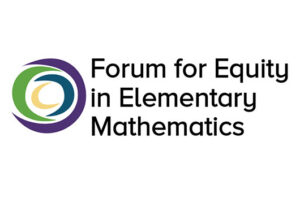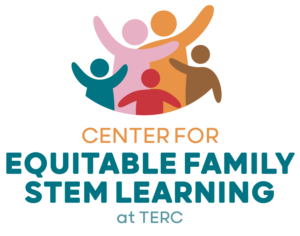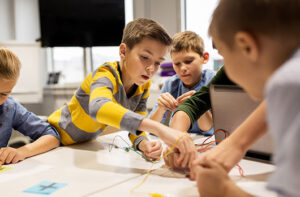Talk Science
Talk Science PD is a blend of web-based study, opportunities to try ideas in the classroom, and face-to-face study group meetings designed to help teachers increase the effectiveness of classroom science discussions.
In the program, participants deepen their understanding of important science concepts, develop a vision of the role of discussion in science meaning making, and develop nine strategies that support productive discussion. A rich collection of video cases, aligned with the Inquiry Curriculum, provide just-in-time, contextualized support. The video case collection includes:
Talking PointsListen in on videotaped conversations between science teachers and a sociolinguist to understand how to establish a culture of talk in the classroom, understand what productive talk is, and why it is important.
Scientist CasesVisit scientists in their offices and laboratories to see how they carry out Inquiry Project investigations and to hear the reasoning and language they use to talk about core science ideas. These cases provide an insider’s view of the science content that is essential to support productive discussions as part of students’ science experience.
Classroom CasesSit in on classrooms to see “productive science discussion” from the Inquiry Curriculum in action, listen to students, and observe how teachers foster a culture of productive talk. These cases help teachers envision how to implement productive discussions in their own teaching.
Talk StrategiesBecome familiar with nine strategies teachers use to support a culture of productive talk in the classroom. Use these strategies to ensure that students do the “heavy lifting” in the discussion, and to ensure that discussions are rigorous and equitable.
PublicationsSassi, A., Bopardikar, A., Kimball, A., & Michaels, S. M. (2013, April). From “sharing out” to “working through ideas”: Helping teachers transition to more productive science talk. Paper presented at the annual meeting of the National Association for Research in Science Teaching (NARST), Rio Grande, Puerto Rico. Doubler, S. J., & Bopardikar, A. (2014). Talk Science (#0918435): Annual report written for the National Science Foundation. Cambridge, MA: TERC. Terc. (n.d.). Talk Science Research Findings. Published on Talk Science project website https://inquiryproject.terc.edu/research/talk_science/. Also available as a pdf.
Talk Science PD is a blend of web-based study, opportunities to try ideas in the classroom, and face-to-face study group meetings designed to help teachers increase the effectiveness of classroom science discussions.
In the program, participants deepen their understanding of important science concepts, develop a vision of the role of discussion in science meaning making, and develop nine strategies that support productive discussion. A rich collection of video cases, aligned with the Inquiry Curriculum, provide just-in-time, contextualized support. The video case collection includes:
Listen in on videotaped conversations between science teachers and a sociolinguist to understand how to establish a culture of talk in the classroom, understand what productive talk is, and why it is important.
Scientist CasesVisit scientists in their offices and laboratories to see how they carry out Inquiry Project investigations and to hear the reasoning and language they use to talk about core science ideas. These cases provide an insider’s view of the science content that is essential to support productive discussions as part of students’ science experience.
Classroom CasesSit in on classrooms to see “productive science discussion” from the Inquiry Curriculum in action, listen to students, and observe how teachers foster a culture of productive talk. These cases help teachers envision how to implement productive discussions in their own teaching.
Talk StrategiesBecome familiar with nine strategies teachers use to support a culture of productive talk in the classroom. Use these strategies to ensure that students do the “heavy lifting” in the discussion, and to ensure that discussions are rigorous and equitable.
PublicationsSassi, A., Bopardikar, A., Kimball, A., & Michaels, S. M. (2013, April). From “sharing out” to “working through ideas”: Helping teachers transition to more productive science talk. Paper presented at the annual meeting of the National Association for Research in Science Teaching (NARST), Rio Grande, Puerto Rico. Doubler, S. J., & Bopardikar, A. (2014). Talk Science (#0918435): Annual report written for the National Science Foundation. Cambridge, MA: TERC. Terc. (n.d.). Talk Science Research Findings. Published on Talk Science project website https://inquiryproject.terc.edu/research/talk_science/. Also available as a pdf.
Visit scientists in their offices and laboratories to see how they carry out Inquiry Project investigations and to hear the reasoning and language they use to talk about core science ideas. These cases provide an insider’s view of the science content that is essential to support productive discussions as part of students’ science experience.
Sit in on classrooms to see “productive science discussion” from the Inquiry Curriculum in action, listen to students, and observe how teachers foster a culture of productive talk. These cases help teachers envision how to implement productive discussions in their own teaching.
Talk StrategiesBecome familiar with nine strategies teachers use to support a culture of productive talk in the classroom. Use these strategies to ensure that students do the “heavy lifting” in the discussion, and to ensure that discussions are rigorous and equitable.
PublicationsSassi, A., Bopardikar, A., Kimball, A., & Michaels, S. M. (2013, April). From “sharing out” to “working through ideas”: Helping teachers transition to more productive science talk. Paper presented at the annual meeting of the National Association for Research in Science Teaching (NARST), Rio Grande, Puerto Rico. Doubler, S. J., & Bopardikar, A. (2014). Talk Science (#0918435): Annual report written for the National Science Foundation. Cambridge, MA: TERC. Terc. (n.d.). Talk Science Research Findings. Published on Talk Science project website https://inquiryproject.terc.edu/research/talk_science/. Also available as a pdf.
Become familiar with nine strategies teachers use to support a culture of productive talk in the classroom. Use these strategies to ensure that students do the “heavy lifting” in the discussion, and to ensure that discussions are rigorous and equitable.
Sassi, A., Bopardikar, A., Kimball, A., & Michaels, S. M. (2013, April). From “sharing out” to “working through ideas”: Helping teachers transition to more productive science talk. Paper presented at the annual meeting of the National Association for Research in Science Teaching (NARST), Rio Grande, Puerto Rico. Doubler, S. J., & Bopardikar, A. (2014). Talk Science (#0918435): Annual report written for the National Science Foundation. Cambridge, MA: TERC. Terc. (n.d.). Talk Science Research Findings. Published on Talk Science project website https://inquiryproject.terc.edu/research/talk_science/. Also available as a pdf.

